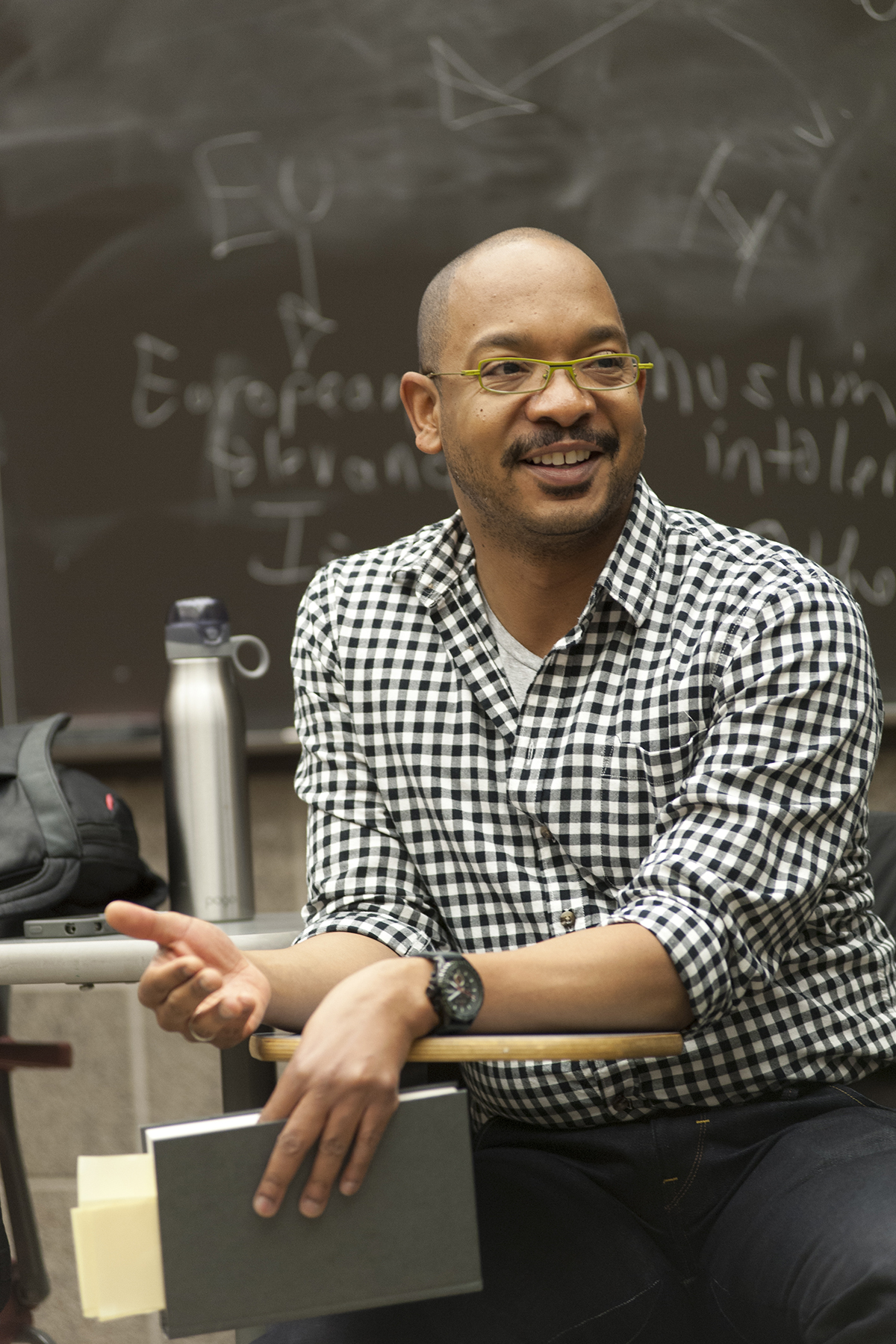
Can you tell us about a teacher who shaped your undergraduate or graduate education?
Dr. Donald P. Addison was the reason I became a social theorist. First, he was my instructor for Introduction to Sociology at Howard. I entered Howard as a journalism major but soon discovered that it wasn’t for me. As part of the journalism requirements, I took Addison’s intro course. He told me that if I kept doing well in the course and switched majors, he would help me get a fellowship to graduate school. I had no concept of what a fellowship and graduate school were, but I hated the journalism major so, I agreed to whatever. After the intro course, he directed me to the social theory courses that he taught, and pretty soon I was reading the Scottish moral philosophers—particularly Smith and Hume—alongside the Senegalese historian Cheikh Anta Diop and the classicist Martin Bernal’s Black Athena. He once said to me when I was taking an independent study from him, “You don’t need to rely on other people’s writings about Marx and Freud to understand Marx and Freud. You can form your own opinions by going to them directly.” This really instilled in me a certain confidence as a reader; I didn’t need to shy away from the “great thinkers.” He really taught me to presume that--where complex theorizations were concerned—I was equal to the task.
Addison was also a civil rights veteran. In fact, he was an assistant professor at North Carolina A&T University in Greensboro from 1960 to 1965 and helped student activists there develop strategies for what would become the famous Greensboro sit-ins. He was subsequently fired by the university’s president for his “radical activity.” Addison really modeled for me that a deep engagement with social theory could be consistent with politically engaged work. To this day, he remains one of my models for institutional courage.
What book or article has recently been on your mind?
I’m very excited about a collection of interviews that colleagues in the U.K. Brenna Bhandar and Rafeef Ziadah have co-edited. It’s a dazzling set of interviews with 10 feminist scholars and activists from across North America and Europe. The book is entitled Revolutionary Feminisms and is being published by Verso. The interviews address so many issues—racial capitalism, socialist feminism, prison abolition, psychoanalysis, progressive social movements, global migration, the legacies of colonialism and slavery, and so on. Our own Lisa Lowe wrote the afterword. The book will be out by August of this year, and I’m absolutely dying to teach it!
What are you working on now?
Right now, I’m working on two books. One is tentatively called In View of the Tradition: Art and Black Radicalism, and the other is called The Bookshop of Black Queer Diaspora. In View of the Tradition puts contemporary black diasporic art in conversation with writings from the black radical tradition. The challenge with it is to write a short book on art and black radicalism for the public, two subjects that don’t easily exist in the American public sphere, but maybe the recent protests indicate an openness to both. We’ll see. I’m determined to turn that in by the end of summer/early fall of this year. The other book is a longer one that I’ve been working on for several years. That one is a way of addressing the rise of neoliberalism in the UK and North America through the historical and cultural artifacts found in a fictional black queer bookshop. I’m going to work to have at least a draft of that book done by the end of 2021.
Can you tell us about one of your best teaching experiences?
I’ve been fortunate to have so many wonderful teaching experiences, mostly at public universities and now at a private one. I thank the gods every day that I can teach interdisciplinary courses within interdisciplinary programs and departments. Students in those courses are generally poised for the harder social questions and for the epistemological innovations that answering them requires. Definitely one standout and singular teaching experience has been the opportunity to teach in the Yale Prison Education Initiative. This has been my first time teaching in a prison, and I’ve just been blown away by the level of critical engagement and emotional intelligence from my students there. They have really exacting standards as readers and interlocutors. They’re not just going to accept anything that you say because you’re “the authority” or because this text was written by so-and-so. They’re also incredibly generous. After one of the classes, I was talking to a couple of the students and one of them said something to the effect of, “We really need you here, but we also know that you’re needed there [at Yale].” That’s a real generosity of spirit and vision, one that has no use for turning people and things into property. We could all learn from that.
